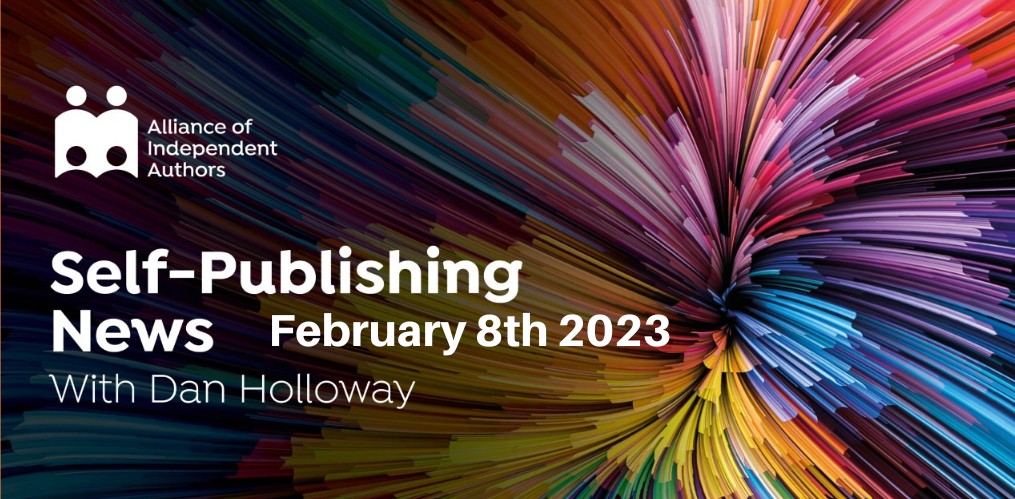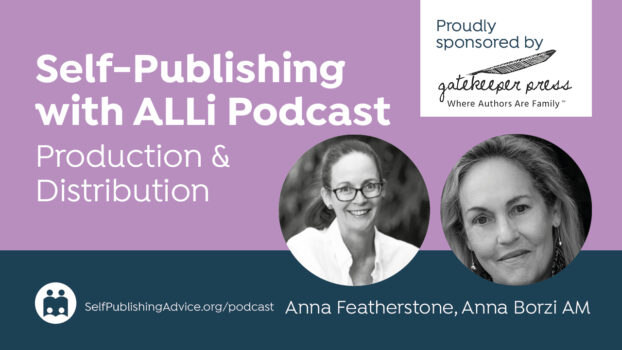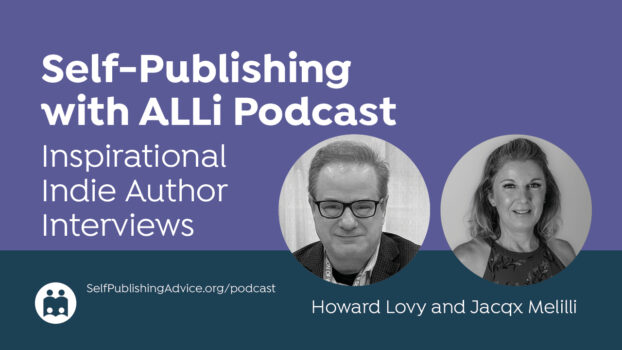In this week's Self-Publishing News Special, ALLi News Editor Dan Holloway takes a look at the UK Government's decision not to press ahead with a controversial plan to allow a copyright exception for data mining.

ALLi's News Editor Dan Holloway
In this month's podcast, Howard and I dedicate the whole show to the latest developments in AI. We talk everything from Apple and Google's AI narration, through Midjourney and AI art, to what ChatGPT and similar tools mean for us as writers. We also talk about our own experiences of using these tools.
UK Government Cancels Plans for Exception to Allow Greater Use of Copyright Materials for AI Text and Data Mining
This week’s AI-related story represents a potential breakthrough for creators. Less than 6 months ago we reported on a major blow as the UK government announced what would happen following its consultation on AI and copyright. The consultation asked about various aspects of copyright in relation to AI. You can read ALLi’s response here. Very little new was proposed as a result of the consultation. But one area and proposed change raised particular alarm bells.
The government proposed a copyright exception for text and data mining. This would allow AI to be trained on any text that someone had obtained by legitimate means. The results of that training would be available for commercial use at any scale.
What this would mean in practice is that if an employee at, let’s say, a major tech firm, had bought your ebook for $2.99, the company they work for could then use that book to train an AI that could then generate, for the company or anyone else, its own books on similar subjects or indeed in your particular style and sell the results. The company would be able to charge them a fee for the text on any basis (one off or royalty). And all you would get is your original cut of the original $2.99.
What you would not be able to do–which creators largely argued you should be able to–is charge a licensing fee.
Creative industries were not happy. Now it seems the UK government is going back to the drawing board, with MPs citing lack of industry support. Let’s hope they listen this time. It is encouraging to see MPs admitting that technology in this area is moving really rapidly, something they often fail to grasp.
Requirement to Grant Apple AI Training Rights Tucked Away in Findaway Voices Terms and Conditions
On a similar subject, Nate Hoffelder pointed out on Twitter that Findaway Voices’ 2020 terms and conditions change now looks a little more alarming. The terms and conditions you sign, which enable you to get your audiobooks into the Overdrive catalogue and other places you probably want to be, makes you grant Apple the right to train its voice generation AI on your audiobooks . It seems authors can request an opt out, to which they get a generic response. But that’s not the way to do things transparently. And Hoffelder has made the interesting point that the voice rights being gobbled up are not the author’s to grant (but the narrator’s!)
Amazon Finally Adds Change to Ebook Returns Policy to Its Terms
Talking of rollbacks, there is more news in the story of Amazon’s disastrous ebook returns policy. The Authors Guild of America website has a page with interesting dated updates on the saga starting with Amazon’s initial movement in September last year. The original complaint was that readers were using Amazon’s time based ebook return policy to return books they had finished reading for a complete refund. Causing authors to lose royalties in the process.
Amazon responded in September by saying they would change the policy so that no one who had read more than 10% of an ebook would be able to claim a refund. They initially stated that they would introduce the policy by the end of 2022.
That didn’t happen, and in the 3rd week of January Amazon said they were still working on it. Amazon have now, finally, changed their returns policy to include the line that customers “may not be eligible for a refund if a book has been partially read or if we detect account abuse.”
New Look Inside Tool For Bookshop.org
Bookshop.org gained initial traction at the start of the pandemic by offering an alternative to Amazon. It allowed people to continue to support indie bookstores with the convenience of ordering online. Through a single account you can ensure that a cut from every purchase you make from Bookshop.org goes to an indie store of your choice. A different store in any location each time if you want. Three tears down the line, the platform continues to develop its offering, which is great to see. Bookshop.org's latest development is a “look inside” feature. Book2Look will provide tech that allows readers to preview before they buy, in a way similar to the “look inside” feature on Amazon.
ALLi's Melissa Addey at Fictionary
Our Campaigns Manager, Melissa Addey, will be speaking at the Fictionary from 12-14 February. You can find all the details for the event here.
Self-publishing News: UK Government Cancels Plan to Allow Copyright Exception for Text and Data Mining Share on X




